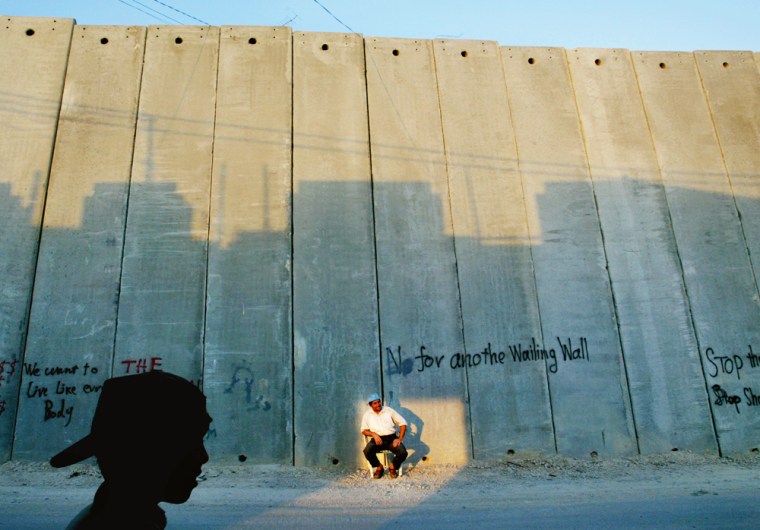Arab nations will ask the U.N. General Assembly next week to urge the destruction of the barrier that Israel is building to seal off the West Bank following Friday’s ruling by the International Court of Justice.
“This decision calls on Israel to destroy this wall and desist from further actions,” said Ambassador Yahya Mahmassani, the Arab League’s representative at the United Nations. “Israel is in violation of international law, of international legitimacy, and the General Assembly now will be called upon to look into this matter.”
Mahmassani said Arab nations would send a letter either Friday or Monday to request a meeting of the General Assembly to implement the court’s decision.
‘ Israel has to destroy this wall’
“We’ll ask what the court had decided — Israel has to destroy this wall,” he said. “It is illegitimate. It’s in violation of international law.”
At the Palestinians’ request, the General Assembly asked the world court in December for its opinion on the legality of the barrier — a 425-mile complex of concrete walls, razor-wire fences, trenches and watch towers. About one-fourth has been completed, much of it close to the pre-1967 border, but some dipping into the West Bank.
The world court ruled the barrier violated international law and urged the United Nations to take action to halt its construction.
Israel’s U.N. Ambassador Dan Gillerman denounced the non-binding advisory opinion, accusing the court of failing to recognize that the barrier had reduced terrorist attacks against Israelis by 90 percent.
“The real barrier between Israel and the Palestinians is not this fence. The real barrier is the rein of terror being waged by the Palestinians and their evil leadership,” he told a news conference, adding that when there is peace with the Palestinians, the barrier would be removed.
Friday's lengthy and complex decision by the world court was read by court president Shi Jiuyong of China.
"The court accordingly finds that the construction of the wall, and its associated regime, are contrary to international laws," the court said.
Reparations ordered
The court also ordered Israel to pay reparations to Palestinians harmed by the barrier and return land seized to construct it.
"The court is of the view that the United Nations, and especially the General Assembly and the Security Council, should consider what further action is required to bring to an end the illegal situation resulting from the construction of the wall," the judgment said.
The judges were unexpectedly united in backing the decisions, by a vote of 14-1 for most paragraphs of the decision, with only the American judge dissenting.
The court said the barrier was routed in a way that would encompass 80 percent of the Israeli settlers in the West Bank, while cutting off more than 230,000 Palestinians from their surrounding areas.
Despite Israel's protests that the barrier was temporary and not designed as a political boundary, the court said it could amount to "de facto annexation" by creating new facts on the ground.
It said the building of the barrier "severely impedes the exercise of the Palestinian people of its right to self-determination, and therefore is a breach of Israel's obligation to the respect of that right."
The 15-member court's advisory opinions are nonbinding, but bear moral and historic weight.
Court dismisses Israeli objections
The court dismissed Israel's objections that the U.N. General Assembly acted irregularly in asking the court for an advisory opinion.
It also rebuffed Israel's argument — supported by the United States and several European countries — the court should refrain from interfering because the issue was political, not legal, and could disrupt Mideast peace efforts.
"A legal question also has political aspects," said the ruling.
"The court accordingly has jurisdiction to give the advisory opinion" requested by the General Assembly, it said.
The court said it was aware of the political negotiations called the "road map," but said it was not clear its legal opinion would influence those efforts.
The court dealt in passing with issues long at dispute between Israel and the Arab states.
It determined that the lands captured by Israel in the 1967 Middle East war are occupied territory, including East Jerusalem. Israel has refused to recognize Jerusalem as occupied since it was formally annexed by the Israeli parliament shortly after the war.
While the General Assembly and Security Council had never recognized Israel's claims, it was the first time Israel's status in the West Bank was the subject of an international legal judgment.
The court said Israel was obliged by all international treaties and conventions of international law, including the Geneva Conventions and common humanitarian law.
